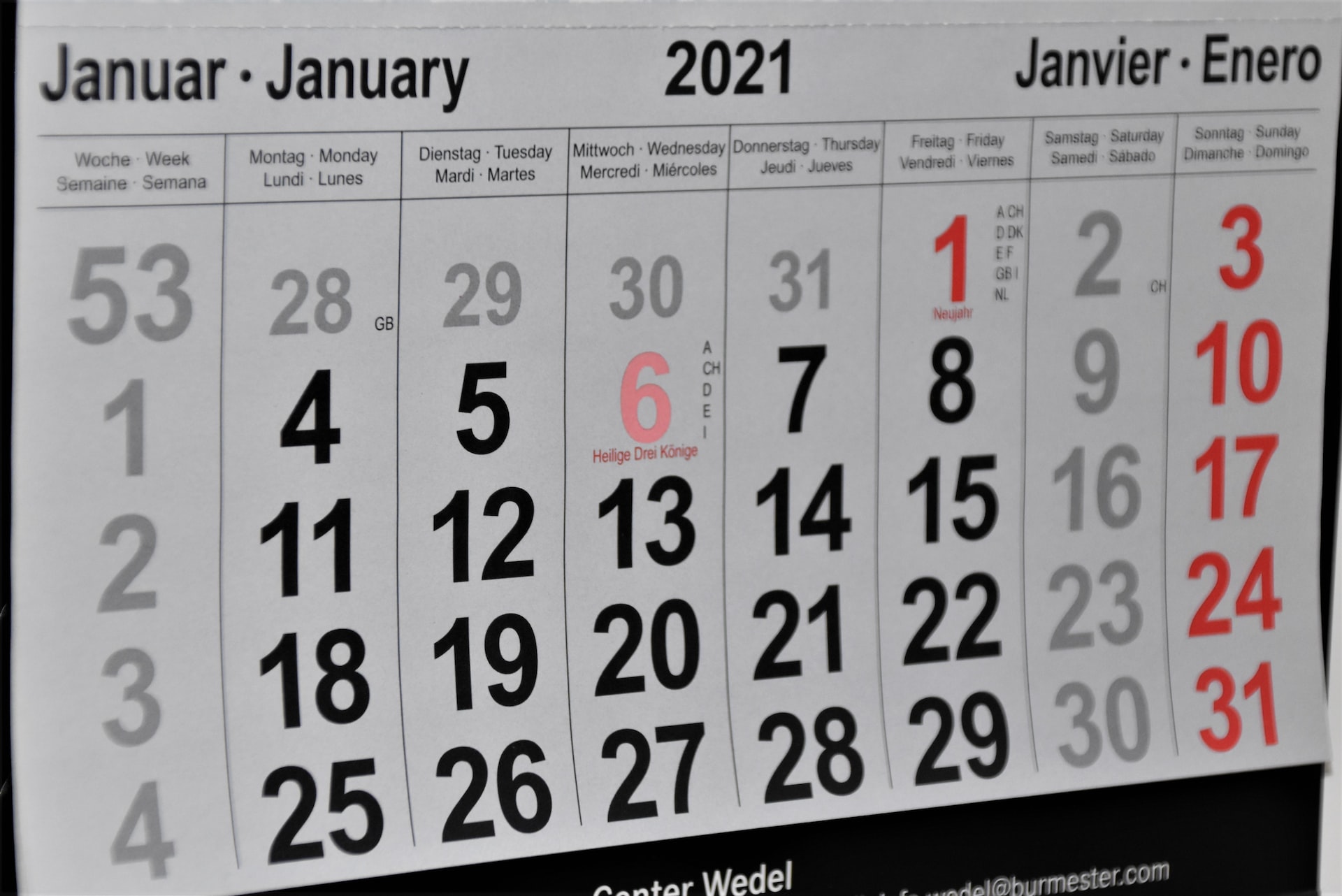Caught Watching Mahalini's Concert, Aaliyah and Thariq Halilintar Speak Out About Fuji's Attitude at the Tik Tok Awards
Aaliyah Massaid and Thariq Halilintar were caught watching Mahalini's concert. Read more here...

Kapanlagi.com - Javanese Primbon is very popular among the Indonesian people. Primbon Jowo is usually used as a guide to determine auspicious days and make decisions. Javanese Primbon itself has a dating system used to determine the neptu weton of each person.
Javanese Primbon is an inheritance from ancestors that has been passed down through generations, containing important notes about various events related to humans and the universe. Its functions include knowing someone's character, finding auspicious days, fortune-telling, and more.
Apart from that, there is a special dating system in the Javanese calendar that is also used as the basis for calculating Javanese primbon. The Javanese calendar has differences with the Gregorian calendar, which is widely used by people around the world. To find out the explanation, check it out here, KLovers.

(credit: pexels.com)
The understanding of Javanese primbon is quite familiar. According to the Great Dictionary of the Indonesian Language (KBBI), Javanese primbon is a book that contains predictions, a book that gathers various Javanese knowledge, containing formulas of occult knowledge, a complex numbering system to calculate auspicious days for conducting ceremonies, building houses, traveling, managing all important matters, both for individuals and communities.
Meanwhile, in terms of language, the word 'primbon Jowo' comes from the word 'rimbu' which means storage. It refers to the storage of records in a Javanese primbon book that contains various aspects of life and is passed down to future generations.
There are several Javanese primbon books that people can find. For example, books like Javanese primbon Padhukunan Pal-Palan, Javanese primbon Bekti Jamal, Weda Mantra, Betaljemur Adammakna, and so on.
These primbon books have been traditionally used to determine various events that occur in life along with their calculations, to find auspicious days, and even to describe someone's character. In Javanese primbon, there are also teachings such as pranata mangsa, petungan, pawukan, pengobatan, aji-aji, wirid, kidung, predictions, tata cata slametan, donga, sasimta gaib. That is the understanding of Javanese primbon that needs to be known.

Illustration of the Javanese Primbon Calendar (credit: pexels.com)
Primbon Jowo has a different calendar system compared to the Gregorian calendar. In Javanese primbon, the calendar is used for determining auspicious days, compatibility with a partner, and other purposes.
In the Javanese primbon calendar, there are weekly days and pasaran days. Not only are there pasaran days, but the Javanese primbon calendar also has different month names, including the number of days in a month and a year. This Javanese calendar is known for two calendar systems, namely the Javanese Islamic calendar and the Saka-Hindu calendar. The Saka-Hindu calendar used to be used for dating in the past, based on the solar revolution.
Meanwhile, the Javanese Islamic calendar is based on the lunar revolution. The detailed list of Javanese Islamic calendar month names includes Sura, Sapar, Mulud, bakda Mulud, Jumadil Awal, Jumadil Akhir, Rejeb, Ruwah, Pasa, Sawal, Sela, and Besar. As for the pasaran days in the Javanese calendar, they are Legi, Pahing, Pon, Wage, and Kliwon. Furthermore, according to the Javanese primbon calendar, a year consists of 354-355 days, and a month can have 29 to 30 days.

Illustration of the Neptu Concept in the Javanese Calendar (credit: unsplash)
In the Javanese calendar system used in Javanese primbon, there is a concept of weton and neptu. Weton is a combination of birth day (Monday, Tuesday, Wednesday, Thursday, Friday, Saturday, and Sunday) and Javanese pasaran (Legi, Pahing, Pon, Wage, and Kliwon). Weton is commonly used as a marker of birth day.
From weton, the neptu number can be obtained, which is the result of adding the value of the Javanese day and pasaran. Each weton has a unique numerical value. Later, the weton number can be used for various purposes such as fortune-telling or predictions for predicting fortune, marriage, character, and so on.
To better understand the concept of weton and neptu, here are the neptu values of the Javanese pasaran:
- Pasaran Legi has a value of 5
- Pasaran Pahing has a value of 9
- Pasaran Pon has a value of 7
- Pasaran Wage has a value of 4
- Pasaran Kliwon has a value of 8
Meanwhile, the days of the week also have different neptu values:
- Sunday has a value of 5
- Monday has a value of 4
- Tuesday has a value of 3
- Wednesday has a value of 7
- Thursday has a value of 8
- Friday has a value of 6
- Saturday has a value of 9

Illustration of Characters Based on the Javanese Market (credit: unsplash)
In Javanese primbon, pasaran not only serves as a time marker. In addition to determining weton and neptu, Javanese pasaran is also commonly used to predict someone's character. This is because each pasaran is believed to indicate their nature or character. Here is an explanation of people's character based on Javanese pasaran according to primbon.
1. Legi Pasaran Character
For those born on Legi pasaran, they are considered intelligent, talented in the arts, and hold an important role in Javanese culture as influential thinkers. In addition, Legi Pasaran is also associated with leadership and the ability to inspire others.
2. Pahing Pasaran Character
On the contrary, individuals born on Pahing pasaran are known to be charismatic, strong, have strong leadership abilities, and have great social appeal. They are often recognized as talented artists, and Pahing Pasaran is respected as the "title of the artist" in Javanese culture.
3. Pon Pasaran Character
People born on Pon pasaran are considered brave, confident, have a strong leadership spirit, and are highly admired in society. Pon Pasaran is also respected as the "title of the leader" in Javanese tradition.
4. Wage Pasaran Character
Wage Pasaran, which is the fourth order in the Javanese calendar, is known for those who have a strong work ethic, perseverance, determination in achieving goals, and intellectual potential that leads to outstanding achievements.
5. Kliwon Pasaran Character
Kliwon Pasaran is synonymous with deep understanding and wisdom. People born on Kliwon tend to have wise views, especially in complex situations, and they are often seen as individuals highly connected to the spiritual aspects of Javanese culture, making them meticulous in exploring the meaning of life.

Illustration of the Gregorian Calendar (credit: pexels.com)
After learning about the explanation of the Javanese traditional calendar, it feels incomplete not to know about the Gregorian calendar. The Gregorian calendar is used worldwide. This calendar's new year is determined based on the birth of Jesus. Meanwhile, the Gregorian calendar is also known as Anno Domini, which dates and numbers the years according to the Julian and Gregorian calendars.
Unlike the Javanese calendar, the Gregorian calendar has 365 days in a year. The months are the same, consisting of 12 months commonly known as January, February, March, April, May, June, July, August, September, October, November, and December.
Meanwhile, the calculation in the Gregorian calendar is based on the Earth's revolution around the sun. The number of days in a month according to the Gregorian calendar ranges from 28 to 31 days. That is the explanation of the Gregorian calendar.

Illustration of the Differences between Javanese Primbon Calendar and Gregorian Calendar (credit: pexels.com)
After knowing about Javanese primbon and its dating system, there are several differences between Javanese calendar and Gregorian calendar. Therefore, below are the differences between Javanese primbon calendar and Gregorian calendar.
- Javanese calendar is calculated based on the moon's revolution around the earth, while the Gregorian calendar is based on the earth's revolution around the sun.
- Javanese calendar has a range of 29-30 days in a month, while the Gregorian calendar has 28, 30, or 31 days.
- Javanese calendar has a range of 354-355 days in a year, while the Gregorian calendar has 365-366 days.
- Javanese calendar has 5 pasaran days, while the Gregorian calendar has 7 days in a week.
- There is a 67-year difference between Javanese and Gregorian calendars.

How to Calculate Javanese Birth Day Primbon (credit: pexels.com)
Javanese Primbon can be used to check a person's lucky day, fortune, and personality based on their birthdate. Therefore, to calculate Javanese Primbon birthdays, there is a way to calculate based on 'weton' and 'neptu'. Here is an example.
For example, Ani was born on Monday with the 'pasaran' day of Pon. The way to calculate the total 'neptu' of 'weton' is to add up the 'neptu' values based on the birthdate and 'pasaran' day. Monday has a 'neptu' value of 4. While the 'pasaran' day Pon has a 'neptu' value of 7. So the total 'neptu' of 'weton' is 4 + 7 = 11. That is the total 'neptu' of 'weton' that Ani has.
That is an explanation about Javanese Primbon and the difference with the Gregorian calendar. Hopefully, it can increase insights about Javanese Primbon discussions.
JOIN OUR WHATSAPP CHANNEL AT KAPANLAGI.COM TO NOT MISS UPDATES AND LATEST NEWS ABOUT THE ENTERTAINMENT INDUSTRY IN INDONESIA AND ABROAD. CLICK HERE, KLOVERS!
(kpl/gen/nlw)
Cobain For You Page (FYP) Yang kamu suka ada di sini,
lihat isinya
Aaliyah Massaid and Thariq Halilintar were caught watching Mahalini's concert. Read more here...
Mahalini Raharja has just held her first solo concert titled Fabula 2.0. Mahalini shows how bucin she is for her beloved, Rizky Febian. Read more for further information!
Pandawara Group managed to win three awards at the TikTok Awards Indonesia 2023. Find out the story of how it was formed!
Sad news is enveloping the family of siblings Ira Wibowo and Ari Wibowo. The funeral process was very emotional. Read the complete information!
Not a sweet girl like a noble, Phoebe Dynevor appears as an ambitious character alongside Alden Ehrenreich in the film FAIR PLAY!
Premiere at the Venice Film Festival, the film PRISCILLA received a standing ovation for seven minutes and revealed shocking facts about Priscilla and Elvis Presley's meeting!
Jikustik once again shakes the music industry of the homeland through a song titled Pujaan Hatiku (Alter Version).
In addition to their work, these Hollywood celebrities can inspire through their stories of struggling with mental health issues.
The success prompted MD Pictures production house to continue the story of Aris, Kinan, and Lydia in a feature film format.
Yadi Sembako admits his guilt and does not want to follow in Gus Anom's footsteps to report back. Read more here...
Rizky Febian proposes to Mahalini again in the middle of his lover's concert. Read more here...
Drake actually decided to take a break after releasing his latest album, FOR ALL THE DOGS. What is the reason behind this?